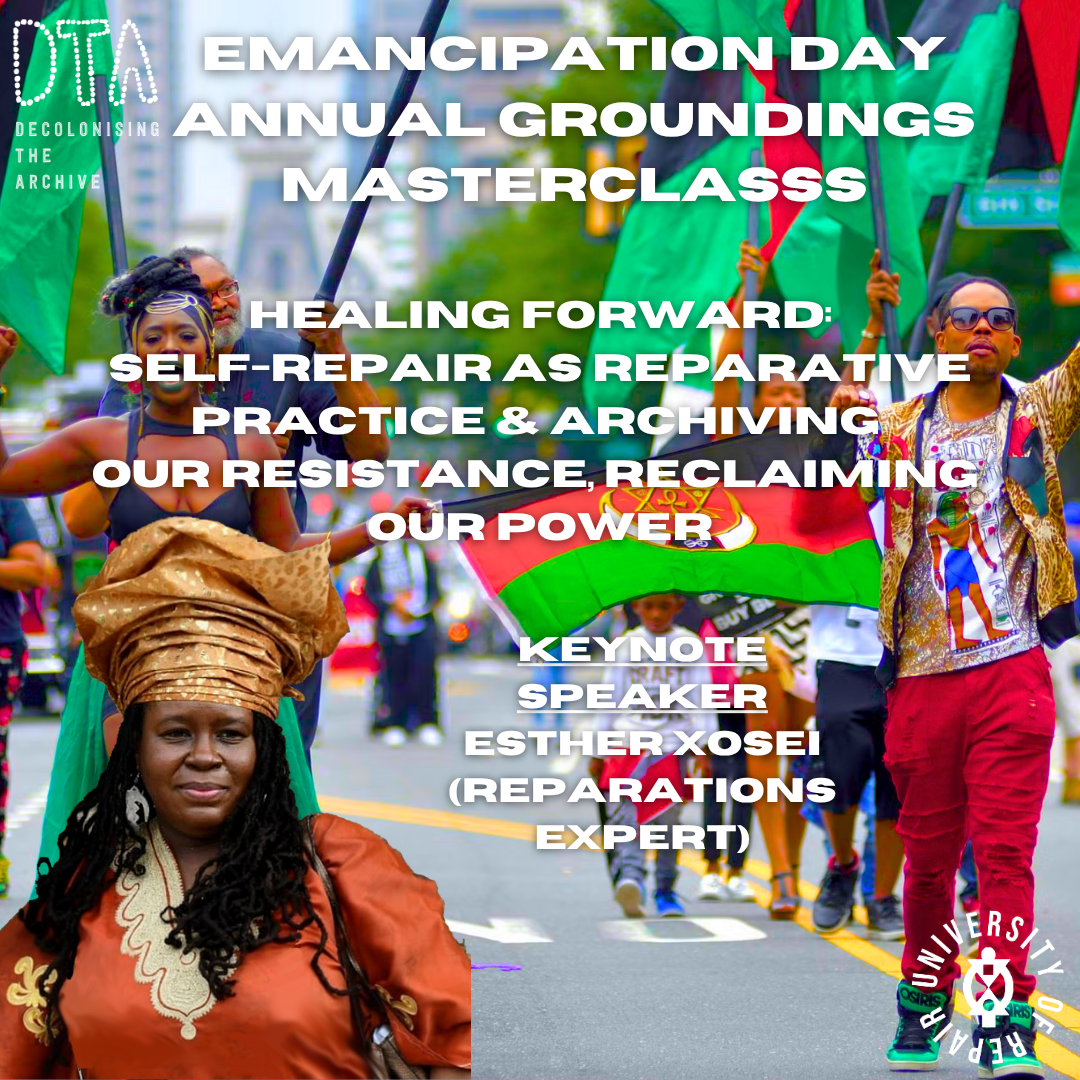Masterclass: Healing Forward: Self-Repair as Reparative Practice - Archiving Our Resistance, Reclaiming Our Power
Join DTA & University of Repair for our annual masterclass in Brixton, London, where the Afrikan Emancipation Day Reparations March will take place. Reparations expert Esther Xosei will lead this Groundings session titled: Healing Forward: Self-Repair as Reparative Practice - Archiving Our Resistance, Reclaiming Our Power. Emancipation Day/Liberation Day is globally celebrated by many African-heritage communities on 1st August, to reflect the emancipation from enslavement in 1838 under the British Empire. The 1833 Abolition of Slavery Act outlawed the trading of enslaved people starting from 1st August 1834, but actually extended the period of enslavement until 1838 under the so-called “Apprenticeship” system (which was another form of of forced labour without compensation).
Masterclass Theme
Whatever it is, the way you tell your story online can make all the difference.
The above reformulated theme positions self-repair not as individual burden, but as collective reparative action that honours ancestral resistance to the Maangamizi while building contemporary resilience.
‘Healing Forward’ refers to repair work that moves us toward liberation rather than just recovering from trauma. It is healing that builds power, not just treats wounds. We can think of it as transformative repair that creates something stronger than what existed before the harm.
Esther Xosei: “The topic I will speak on is "Reclaiming Our Power: How Self-Repair Becomes Reparations in Action" In this proposed talk I aim to reframe the entire conversation from "damaged people learning to heal" to "powerful people reclaiming stolen resources." It will position self-repair not as individual responsibility but as collective resistance that IS reparatory justice in praxis.”
Seats Will Be Limited
Reframe the Narrative: Present self-repair as an act of resistance against systems (Maangamizi) that damaged our communities, rather than placing responsibility on individuals to "fix" what was broken by oppression. In this regard it is important to emphasize that our ancestors' survival strategies were themselves forms of repair that we're continuing.
Connect Archives to Living Practice: Use family archiving as a bridge between historical resistance and contemporary self-repair efforts. In this way we can show how documenting our stories of survival, Maangamizi resistance, Maangamizi counteraction and healing becomes both preservation and empowerment.
Highlight Collective Repair: Demonstrate how individual healing contributes to community restoration, which is itself a form of reparations. This shifts from personal responsibility to communal empowerment.

